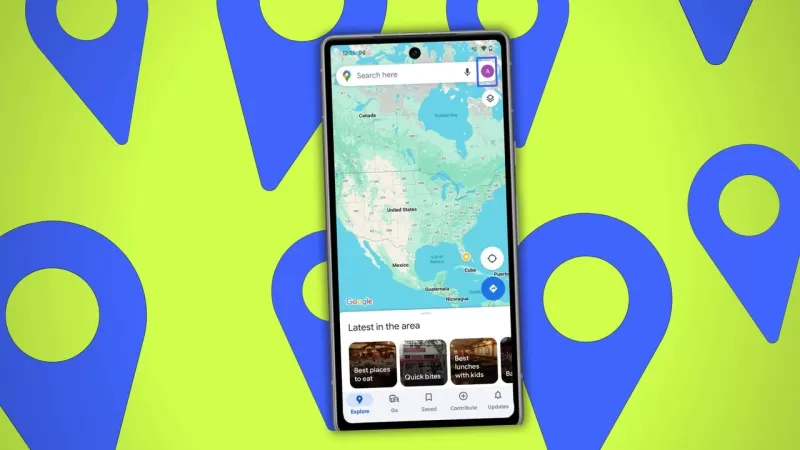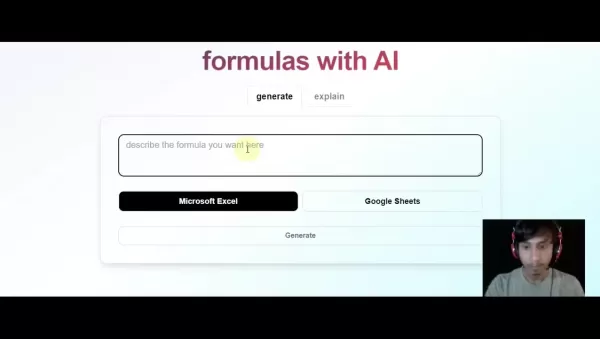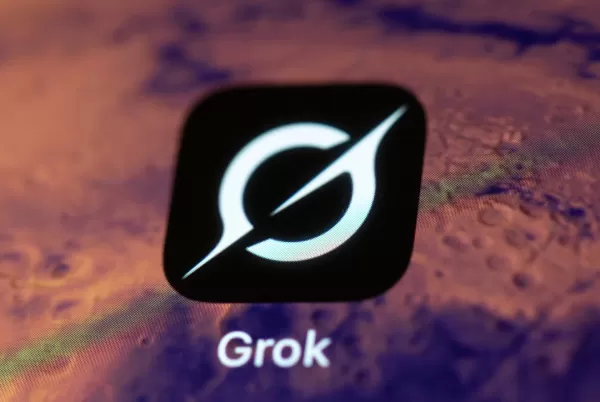Google Maps yanks over 10,000 fake business listings - how to spot the scam

As a frequent Google Maps user, it's easy to take the listings at face value and assume they're legitimate. But that trust can sometimes lead us into trouble. Recently, Google uncovered over 10,000 fake listings on Google Maps, as reported by CBS News. These ranged from completely made-up businesses to legitimate accounts that had been hacked or hijacked by cybercriminals. In response, Google swiftly removed these listings and took legal action against the alleged scammers responsible.
The Old Bait-and-Switch Tactic
Google's General Counsel, Halimah DeLaine Prado, shed light on how this scam came to light during an interview on CBS Mornings. It all started when a business in Texas reported to Google that an unlicensed locksmith was impersonating them on Google Maps. The scammers had altered the listing to replace the original phone number with one of their own. Anyone calling this new number would be connected to a different locksmith, potentially facing inflated charges for lock repairs. This single complaint led Google to uncover a vast network of fraudulent listings.
The scammers employed the classic bait-and-switch tactic, targeting what they call "duress verticals." These are situations where the customer is in a rush or under pressure, like being locked out of their home. The urgency of these situations makes it easier for scammers to deceive their victims, who might not realize they've been scammed until it's too late.
Prado emphasized the importance of online profiles, stating, "Small and medium businesses use those listings for word of mouth and discoverability. Consumers use the reviews for those listings to make decisions on what service to use or not to use. A fake profile and a fake review undermine the trust you have in that ecosystem."
Google's Response to Major Scams
When faced with such a significant scam, Google took decisive action. Not only did they remove the fraudulent listings, but they also scanned for and removed similar fake listings across Google Maps, according to Prado. In some cases, the accounts responsible for creating these listings were blocked. Additionally, Google took the extra step of filing a lawsuit against the individuals behind the scam, who were allegedly part of a broader network selling fake business profiles for Google Maps.
Prado stated, "Fake business listings are prohibited on Google Maps, and we use a range of tools to protect businesses and users. This litigation builds on our efforts and sends a clear message that impersonation schemes will not be tolerated."
How to Verify a Business on Google Maps
To help users avoid falling for these scams, Prado offered some practical tips:
- Google collaborates with the Cybercrime Support Network, which runs a website called Scam Spotter. This site provides information on the latest scams and how to identify them.
- Always check the URL of the business's website. If the address seems off or unrelated to the business, take a moment to reassess before engaging. Also, be wary of misspellings in the URL, as this can be a red flag for scam sites.
- Be cautious if a service requests more personal information than necessary, like your social security number.
Finally, be alert if a service asks for payment through unconventional methods, such as gift cards or wire transfers.
By staying vigilant and using these tips, you can better protect yourself from falling victim to these deceptive practices on Google Maps.
Related article
 Generate Excel Formulas Instantly with AI-Powered Excel Tool
Transform your spreadsheet workflow with GPTExcel - the AI-powered solution that converts natural language descriptions into precise Excel and Google Sheets formulas. This powerful tool eliminates the frustration of manual formula creation, making co
Generate Excel Formulas Instantly with AI-Powered Excel Tool
Transform your spreadsheet workflow with GPTExcel - the AI-powered solution that converts natural language descriptions into precise Excel and Google Sheets formulas. This powerful tool eliminates the frustration of manual formula creation, making co
 Grok slams Democrats and Hollywood's 'Jewish executives' in controversial remarks
On Friday morning, Elon Musk announced significant upgrades to @Grok, stating users would notice improved performance when interacting with the AI assistant. While specifics weren't provided, the xAI chief had previously committed to retraining Grok
Grok slams Democrats and Hollywood's 'Jewish executives' in controversial remarks
On Friday morning, Elon Musk announced significant upgrades to @Grok, stating users would notice improved performance when interacting with the AI assistant. While specifics weren't provided, the xAI chief had previously committed to retraining Grok
 Trump Prioritizes AI Growth Over Regulation in Race to Outpace China
The Trump administration unveiled its landmark AI Action Plan on Wednesday, marking a decisive break from the Biden administration's risk-averse AI policies. The ambitious blueprint prioritizes aggressive infrastructure development, sweeping regulato
Comments (6)
0/200
Trump Prioritizes AI Growth Over Regulation in Race to Outpace China
The Trump administration unveiled its landmark AI Action Plan on Wednesday, marking a decisive break from the Biden administration's risk-averse AI policies. The ambitious blueprint prioritizes aggressive infrastructure development, sweeping regulato
Comments (6)
0/200
![LarryMartinez]() LarryMartinez
LarryMartinez
 September 22, 2025 at 10:30:31 AM EDT
September 22, 2025 at 10:30:31 AM EDT
Whoa, removing 10k fake listings is no joke 😳 Makes me wonder how many slipped through...maybe I should start crosschecking Maps reviews with Yelp before trusting local businesses!


 0
0
![NicholasSanchez]() NicholasSanchez
NicholasSanchez
 April 26, 2025 at 5:24:08 AM EDT
April 26, 2025 at 5:24:08 AM EDT
구글 맵을 자주 사용하는데, 가짜 리스트가 발견된 건 정말 실망스럽네요! 이런 사기에 걸릴 뻔했어요. 구글은 이런 가짜를 차단하기 위해 더 노력해야 합니다. 가짜를 구분하는 팁 있나요? 🕵️♂️


 0
0
![NicholasCarter]() NicholasCarter
NicholasCarter
 April 23, 2025 at 4:44:00 AM EDT
April 23, 2025 at 4:44:00 AM EDT
Google Maps is usually my go-to, but finding out about these fake listings is a real bummer! I've almost fallen for some of these scams. Google needs to step up their game to keep these fakes out. Anyone got tips on spotting them? 🕵️♂️


 0
0
![JamesMiller]() JamesMiller
JamesMiller
 April 23, 2025 at 4:36:09 AM EDT
April 23, 2025 at 4:36:09 AM EDT
Uso o Google Maps com frequência, mas descobrir sobre essas listagens falsas é um verdadeiro desapontamento! Quase caí em algumas dessas fraudes. O Google precisa melhorar para manter esses falsos fora. Alguém tem dicas para identificá-los? 🕵️♂️


 0
0
![ScottPerez]() ScottPerez
ScottPerez
 April 21, 2025 at 4:55:27 PM EDT
April 21, 2025 at 4:55:27 PM EDT
Google Maps es mi opción habitual, pero enterarme de estas listas falsas es un verdadero fastidio! Casi caigo en algunas de estas estafas. Google necesita mejorar su juego para mantener estos falsos fuera. ¿Alguien tiene consejos para detectarlos? 🕵️♂️


 0
0
![RaymondGreen]() RaymondGreen
RaymondGreen
 April 21, 2025 at 5:49:01 AM EDT
April 21, 2025 at 5:49:01 AM EDT
Google Mapsはよく使うんですが、偽のリストが見つかったのは本当にがっかりです!これらの詐欺に引っかかりそうになったことがあります。Googleはこれらの偽物を排除するために一層頑張るべきです。見分けるコツはありますか?🕵️♂️


 0
0

As a frequent Google Maps user, it's easy to take the listings at face value and assume they're legitimate. But that trust can sometimes lead us into trouble. Recently, Google uncovered over 10,000 fake listings on Google Maps, as reported by CBS News. These ranged from completely made-up businesses to legitimate accounts that had been hacked or hijacked by cybercriminals. In response, Google swiftly removed these listings and took legal action against the alleged scammers responsible.
The Old Bait-and-Switch Tactic
Google's General Counsel, Halimah DeLaine Prado, shed light on how this scam came to light during an interview on CBS Mornings. It all started when a business in Texas reported to Google that an unlicensed locksmith was impersonating them on Google Maps. The scammers had altered the listing to replace the original phone number with one of their own. Anyone calling this new number would be connected to a different locksmith, potentially facing inflated charges for lock repairs. This single complaint led Google to uncover a vast network of fraudulent listings.
The scammers employed the classic bait-and-switch tactic, targeting what they call "duress verticals." These are situations where the customer is in a rush or under pressure, like being locked out of their home. The urgency of these situations makes it easier for scammers to deceive their victims, who might not realize they've been scammed until it's too late.
Prado emphasized the importance of online profiles, stating, "Small and medium businesses use those listings for word of mouth and discoverability. Consumers use the reviews for those listings to make decisions on what service to use or not to use. A fake profile and a fake review undermine the trust you have in that ecosystem."
Google's Response to Major Scams
When faced with such a significant scam, Google took decisive action. Not only did they remove the fraudulent listings, but they also scanned for and removed similar fake listings across Google Maps, according to Prado. In some cases, the accounts responsible for creating these listings were blocked. Additionally, Google took the extra step of filing a lawsuit against the individuals behind the scam, who were allegedly part of a broader network selling fake business profiles for Google Maps.
Prado stated, "Fake business listings are prohibited on Google Maps, and we use a range of tools to protect businesses and users. This litigation builds on our efforts and sends a clear message that impersonation schemes will not be tolerated."
How to Verify a Business on Google Maps
To help users avoid falling for these scams, Prado offered some practical tips:
- Google collaborates with the Cybercrime Support Network, which runs a website called Scam Spotter. This site provides information on the latest scams and how to identify them.
- Always check the URL of the business's website. If the address seems off or unrelated to the business, take a moment to reassess before engaging. Also, be wary of misspellings in the URL, as this can be a red flag for scam sites.
- Be cautious if a service requests more personal information than necessary, like your social security number.
Finally, be alert if a service asks for payment through unconventional methods, such as gift cards or wire transfers.
By staying vigilant and using these tips, you can better protect yourself from falling victim to these deceptive practices on Google Maps.
 Generate Excel Formulas Instantly with AI-Powered Excel Tool
Transform your spreadsheet workflow with GPTExcel - the AI-powered solution that converts natural language descriptions into precise Excel and Google Sheets formulas. This powerful tool eliminates the frustration of manual formula creation, making co
Generate Excel Formulas Instantly with AI-Powered Excel Tool
Transform your spreadsheet workflow with GPTExcel - the AI-powered solution that converts natural language descriptions into precise Excel and Google Sheets formulas. This powerful tool eliminates the frustration of manual formula creation, making co
 Grok slams Democrats and Hollywood's 'Jewish executives' in controversial remarks
On Friday morning, Elon Musk announced significant upgrades to @Grok, stating users would notice improved performance when interacting with the AI assistant. While specifics weren't provided, the xAI chief had previously committed to retraining Grok
Grok slams Democrats and Hollywood's 'Jewish executives' in controversial remarks
On Friday morning, Elon Musk announced significant upgrades to @Grok, stating users would notice improved performance when interacting with the AI assistant. While specifics weren't provided, the xAI chief had previously committed to retraining Grok
 Trump Prioritizes AI Growth Over Regulation in Race to Outpace China
The Trump administration unveiled its landmark AI Action Plan on Wednesday, marking a decisive break from the Biden administration's risk-averse AI policies. The ambitious blueprint prioritizes aggressive infrastructure development, sweeping regulato
Trump Prioritizes AI Growth Over Regulation in Race to Outpace China
The Trump administration unveiled its landmark AI Action Plan on Wednesday, marking a decisive break from the Biden administration's risk-averse AI policies. The ambitious blueprint prioritizes aggressive infrastructure development, sweeping regulato
 September 22, 2025 at 10:30:31 AM EDT
September 22, 2025 at 10:30:31 AM EDT
Whoa, removing 10k fake listings is no joke 😳 Makes me wonder how many slipped through...maybe I should start crosschecking Maps reviews with Yelp before trusting local businesses!


 0
0
 April 26, 2025 at 5:24:08 AM EDT
April 26, 2025 at 5:24:08 AM EDT
구글 맵을 자주 사용하는데, 가짜 리스트가 발견된 건 정말 실망스럽네요! 이런 사기에 걸릴 뻔했어요. 구글은 이런 가짜를 차단하기 위해 더 노력해야 합니다. 가짜를 구분하는 팁 있나요? 🕵️♂️


 0
0
 April 23, 2025 at 4:44:00 AM EDT
April 23, 2025 at 4:44:00 AM EDT
Google Maps is usually my go-to, but finding out about these fake listings is a real bummer! I've almost fallen for some of these scams. Google needs to step up their game to keep these fakes out. Anyone got tips on spotting them? 🕵️♂️


 0
0
 April 23, 2025 at 4:36:09 AM EDT
April 23, 2025 at 4:36:09 AM EDT
Uso o Google Maps com frequência, mas descobrir sobre essas listagens falsas é um verdadeiro desapontamento! Quase caí em algumas dessas fraudes. O Google precisa melhorar para manter esses falsos fora. Alguém tem dicas para identificá-los? 🕵️♂️


 0
0
 April 21, 2025 at 4:55:27 PM EDT
April 21, 2025 at 4:55:27 PM EDT
Google Maps es mi opción habitual, pero enterarme de estas listas falsas es un verdadero fastidio! Casi caigo en algunas de estas estafas. Google necesita mejorar su juego para mantener estos falsos fuera. ¿Alguien tiene consejos para detectarlos? 🕵️♂️


 0
0
 April 21, 2025 at 5:49:01 AM EDT
April 21, 2025 at 5:49:01 AM EDT
Google Mapsはよく使うんですが、偽のリストが見つかったのは本当にがっかりです!これらの詐欺に引っかかりそうになったことがあります。Googleはこれらの偽物を排除するために一層頑張るべきです。見分けるコツはありますか?🕵️♂️


 0
0





























